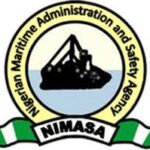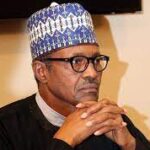Chuks Oyema-Aziken
Stakeholders have called for development of strategies from the National level that would encourage stronger political will and buy-in on Climate Change issues at the sub-nationals.
They made the call at the Southern States Stakeholders Consultation/Engagement Workshop on Project First Biennial Transparency Report and a Combination of Second Biennial Transparency Report/Fourth National Communication to the UNFCCC.
The Workshop was jointly organized by the Federal Ministry of Environment and the United Nationa Development Programme, UNDP in Abuja.
In a communique at the end of the meeting, the stakeholders stated that synergies among collaborating agencies be strengthened through appropriate institutional arrangement that clearly defines roles of the agencies both at the national and subnational levels.
Other recommendations are that Capacity building needs of Stakeholders to be further strengthened on disaggregated and gender-responsive data collation and analysis, GHG Inventory Management, Mitigation and Adaptation assessment in order to effectively deliver on the BTR1 and BTR2/NC4; Adequate Funding was also recommended to deliver on the project; There should be development of country specific emission factors for Key categories;
The workshop also called for full operationalization of the National Greenhouse Gases Inventory Management System and the MRV Coordinating Unit within the Department of Climate Change; Need to partner with Regional and International Research and Systematic Observation (RSO) centres to advance the fight against climate change; Climate change should be integrated into all forms of education in Nigeria.
They also said that particular emphasis should be laid on awareness of all segments of the population to build resilience through adaptation and promote mitigation; Domestication of Gender and Climate Change mainstreaming action plan at Sub-national level is needful; There is need for research to support the development of country specific emission factors and enhance national knowledge on climate change issues to better address them.
In his opening remarks at the workshop, Permanent Secretary, Federal Ministry of Environment, Engr. Hassan Musa, said Nigeria is due to submit its first Biennial Transparency Report (BTR1) in December 2024 and will be due to submit its second Biennial Transparency Report (BTR2) and its fourth National Communication (NC4) in December 2026.
He said: “Owing to the fact that the BTR under the Enhanced Transparency Framework of the Paris Agreement is demanding and the fact that the Modalities, Procedures and Guidelines of the Enhanced Transparency Framework sees everyone within the country as concerned in the issue of climate change, active participation of all stakeholders directly or indirectly in the implementation of the project is imperative.
The workshop brought together relevant Stakeholders from the MDAs, Southern State Climate Change Desk Officers, DCC Staff, National Experts and International Consultants, Academia, CSOs, the organized Private Sector and the Media.
Nigeria, as non-Annex 1 Party to the UNFCCC, has prepared and submitted three National Communications (NCs) and two Biennial Update Reports (BURs) to the Convention to meet its reporting obligations. BURs are usually prepared and submitted every 2 years and NCs every 4 years.
With the advent of the Paris Agreement, BURs have been replaced by Biennial Transparency Reports (BTR) alongside the NCs with the frequency of submission staying the same. Following this development, non-Annex 1 Parties submits a BTR followed by a combined BTR/NC alternating every 2 years.
The first BTR is due in 2024 and Nigeria, after embarking on the preparation of the document for funding of its NC4 has had to change its approach to meet these changes. Thus, Nigeria is presently developing its project document for funding of its First BTR (BTR1) for submission in December 2024 and its second Biennial Transparency Report combined with the Fourth national Communication (BTR2/NC4) in December 2026.
Earlier, stakeholders from the North had met for similar workshop.


